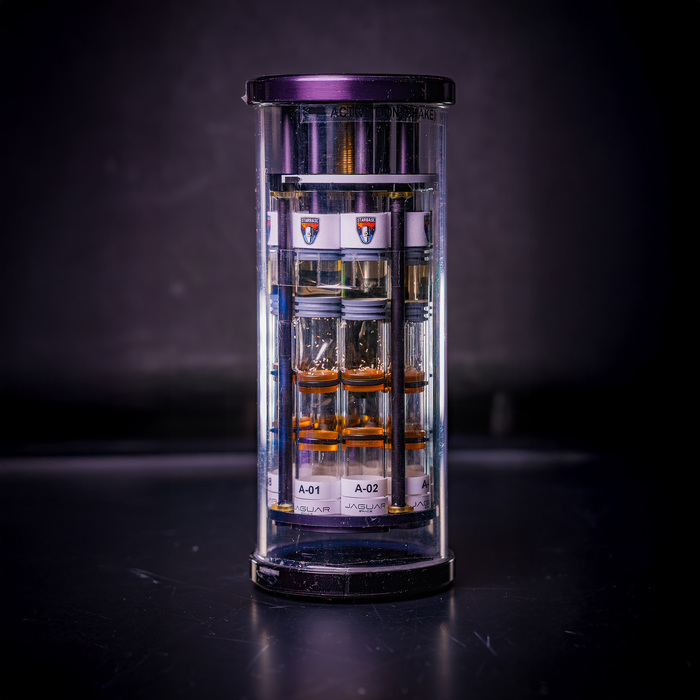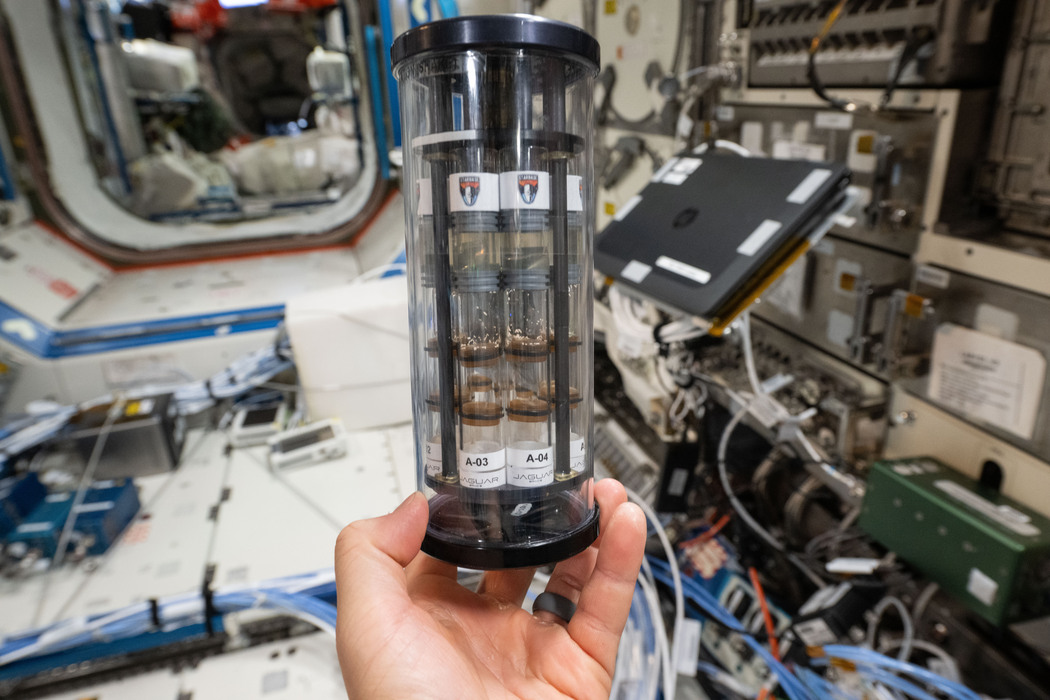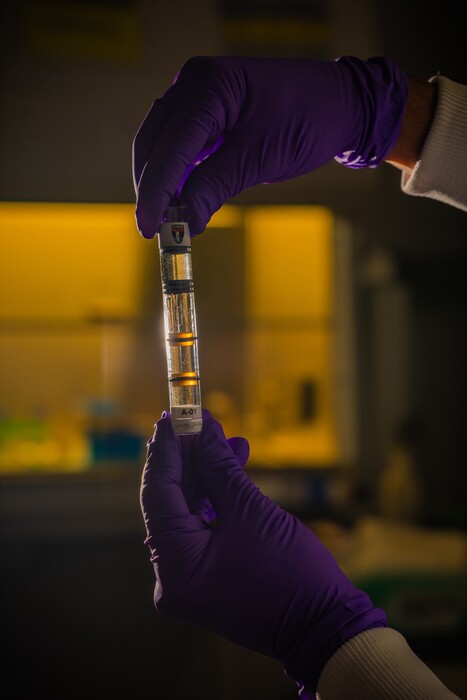TEXAS, OCTOBER 1ST, 2025 – Starbase Brewing, the craft brewing startup founded with the goal of being the first craft brewery on Mars, is excited to announce a historic milestone: the first-ever successful fermentation of a beer (or any other alcoholic beverage) in space.
The MicroBrew-1 Mission
The groundbreaking MicroBrew-1 experiment launched to the International Space Station aboard NASA's Crew-11 mission on August 1st and returned to Earth on August 9th. The beer fermented as expected and the resulting liquid is now being analyzed at multiple universities around the world to inform not only beer-making, but also fermentation-based applications critical for human exploration of space. This initiative aligns with Starbase Brewing's long-term vision of establishing sustainable agriculture on Mars, where brewing techniques could inform broader food production methods for future human settlements.
"Our goal is to do more than just make beer." said Nate Argroves, CEO of Starbase Brewing. "We want to explore how to make interplanetary life possible. MicroBrew-1 is a bold step toward understanding how to grow and process resources in space, starting with one of humanity’s favorite beverages: beer."
Experiment Details
The experiment involved eight specialized test tube containers which were pre-loaded with half wort (the sugary liquid extracted from malted grains) and half yeast, and then assembled into a larger cylinder. Upon arrival at the International Space Station, astronaut Jonny Kim inserted a crank into the cylinder and turned it to mix the contents, becoming the first human to ever initiate the beer fermentation process in space.
The goals of the MicroBrew-1 experiment are to study the process of fermentation, and specifically, to provide insights into how microgravity and cosmic radiation influence brewing and fermentation processes. Researchers are also observing the behavior of top-fermenting yeast in a weightless environment, as this typically rises to the surface during brewing on Earth. The experiment aims to uncover how the absence of sedimentation affects yeast metabolism, fermentation kinetics, and perhaps most importantly, the resulting beer’s flavor profile.
“Fermentation is a fundamental bioprocess for sustaining human life beyond Earth — from food and nutrition to biomanufacturing and waste recycling,” said Dr. Luis Zea, CEO of Jaguar Space and lead researcher for MicroBrew-1. “With MicroBrew-1, we’re conducting targeted research to understand how microgravity affects fermentation at a cellular level. The insights we gain could shape the design of life-supporting systems for future space missions, while also advancing bioprocessing technologies here on Earth.”
Post-Mission Analysis
Following fermentation, the MicroBrew-1 payload returned to Earth aboard a SpaceX Dragon capsule for retrieval and detailed analysis. Collaborating universities are now playing a pivotal role by conducting electron microscopy to study cellular changes, along with performing comprehensive chemical and sensory analysis on the beer samples.
Starbase also flew a second payload to the ISS called OASIS which successfully grew barley seeds in Martian regolith. This was humanity's first-ever attempt to grow crops in soil in space instead of using traditional hydroponic or clay-based methods.
All of these findings are contributing to Starbase Brewing's overarching goal of developing robust agricultural systems for Mars, where environmental challenges like low gravity and high radiation demand innovative solutions. By adapting a process reliant on microbiology and biochemistry like brewing, the company aims to pioneer techniques for cultivating crops and producing consumables in extraterrestrial conditions.
While Mars is the ultimate goal, Starbase’s beers are currently only distributed in Texas and Cape Canaveral, Florida. Over the next few years, the brewery plans to expand distribution nationwide. If you are a distributor interested in carrying Starbase products, please email sales@starbasebrewery[dot]com.
About Starbase Brewing
For More Information:
Learn More


